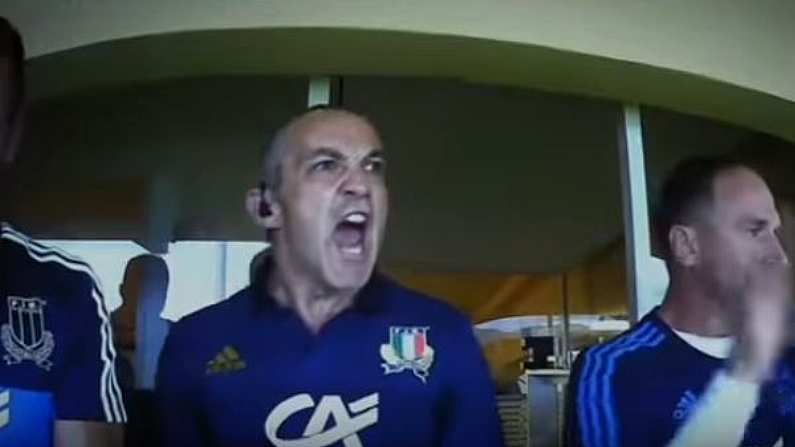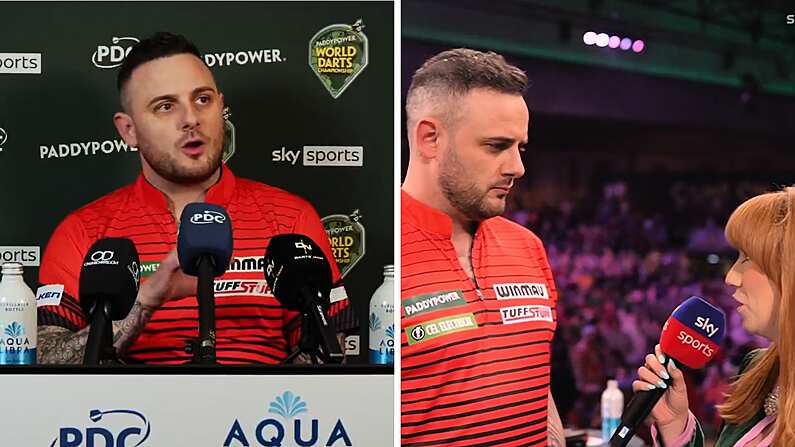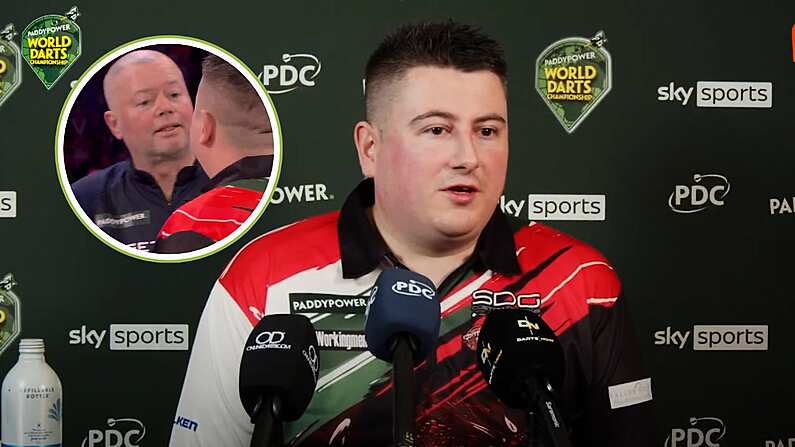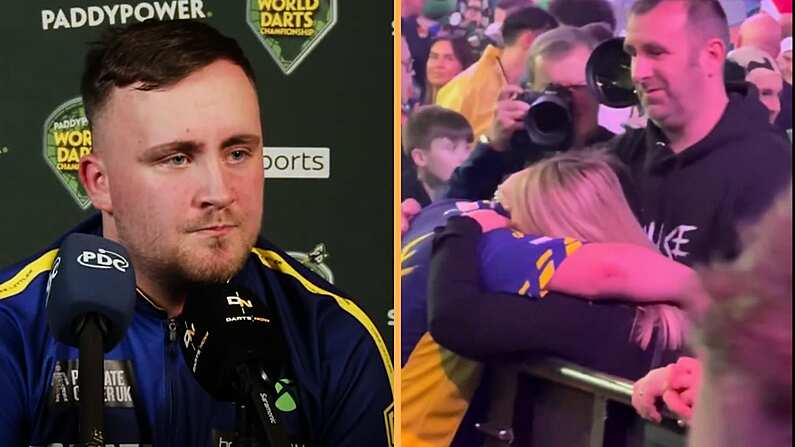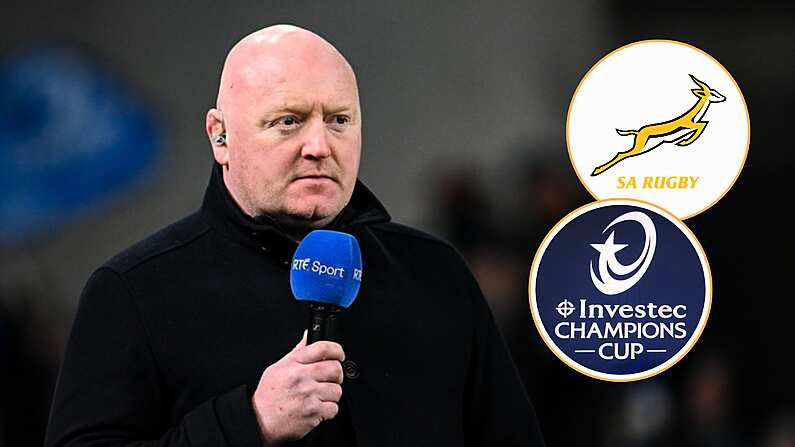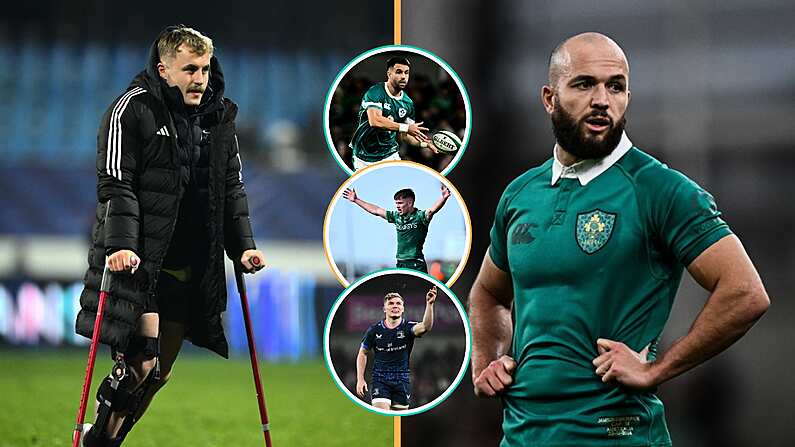Conor O'Shea coached Italy to their first ever victory over a Tri-Nations side at the weekend, a coaching achievement to top leading Harlequins from the depths of post-bloodgate ignominy to the Premiership title in 2012.
As Parisse revealed after the game, both coach and captain spied that South Africa were vulnerable from a long way out and targetted this game as winnable.
Saturday delivered a historic victory. The euphoria of the Italian players was infectious even to the distant observers watching the footage later on on their mobile phones.
O'Shea received a standing ovation from the Italian press corps in the post-match press conference. Tonight, he spoke to Joe Molloy on Off the Ball about the game.
Specifically about how Italy have been brought to the point where they can beat a team like South Africa. Ridding the team's tendency to fade in the final 10-20 minutes of games was paramount. Upping the fitness levels was key as was tweaking the team's style to allow them to survive longer in games. He'd already spoken before about how the fitness levels of Italian players compared poorly with that of the England players at Harlequins.
We'd been taught a few lessons the week before. But what people wouldn't have seen at the end of the game against the All-Blacks we were going incredibly strong. All the stats now were showing that we were miles ahead of where we were six months ago in terms of our fitness. We had to iron out certain system errors.
You also face a different animal. You know what you get when you're facing the Springboks. I knew we were going to be still playing after 80 minutes. It was a question of staying in the hunt. We've a lot more to get out of the team in terms of fitness and the technical side of things. But we're not going to go away over 60-70 minutes now. The team is capable of playing for 80 minutes.
When Brian Ashton left all-conquering Bath to become coach of Ireland in the late 1990s, he was said to be startled at the low skill level of some of the players. In training drills, there was plenty of dropped balls and mutterings of "okay, let's start that one again." The late 90s was not a vintage time for Irish rugby, at least at senior level. According to contemporary observers, Ashton wasn't able to hide his low opinion of some of the players and quickly concluded he'd made a mistake coming to Ireland.
For O'Shea, he's very mindful of building up the players' confidence. The Italian press had grown weary of constant defeats at the end of Brunel's reign and had been inclined to lash out.
It's very exciting because it's so raw and untapped. And I'm so delighted for the players. Because if I kept saying to you, "you're bad at your job, you're bad at your job, you're bad at your job", that negativity seeps through. And that's all people are saying to these guys in Italian rugby. Now, they're not.
He also made a point which might startle people up north. There are, he says, far more registered rugby players in Italy than there are in Ireland, Scotland and Wales. It's a question of playing culture.
There's so many good young players. If you came out here and looked at the junior clubs and the number of kids that are out there. There's a bigger playing population here than in Wales, Scotland and Ireland. So, they're there. It's just the way the game is played, the intensity it's played at, you know, everything has to be looked at. But that can change.
He namechecked a few of the greats of the game who've played club rugby in Italy, namely, Michael Cheika, legendary Sprinbok outhalf Naas Botha, and Mr. David Campese, himself of Italian descent.
This is all about helping with structures and systems. There is so much potential. And I always talk about wanting to see rugby grow not contract. We're training to Petrarca (Padua) at the moment. You go to Rovigo, you go to Viadana and you see Naas Botha up there, David Campese, Michael Cheika, all these people who are up on the wall on pictures. There's such a history and tradition in this country.
What about the standing ovation?
I think it was just because I put two words of Italian together that they gave me a standing ovation.
Listen here:

